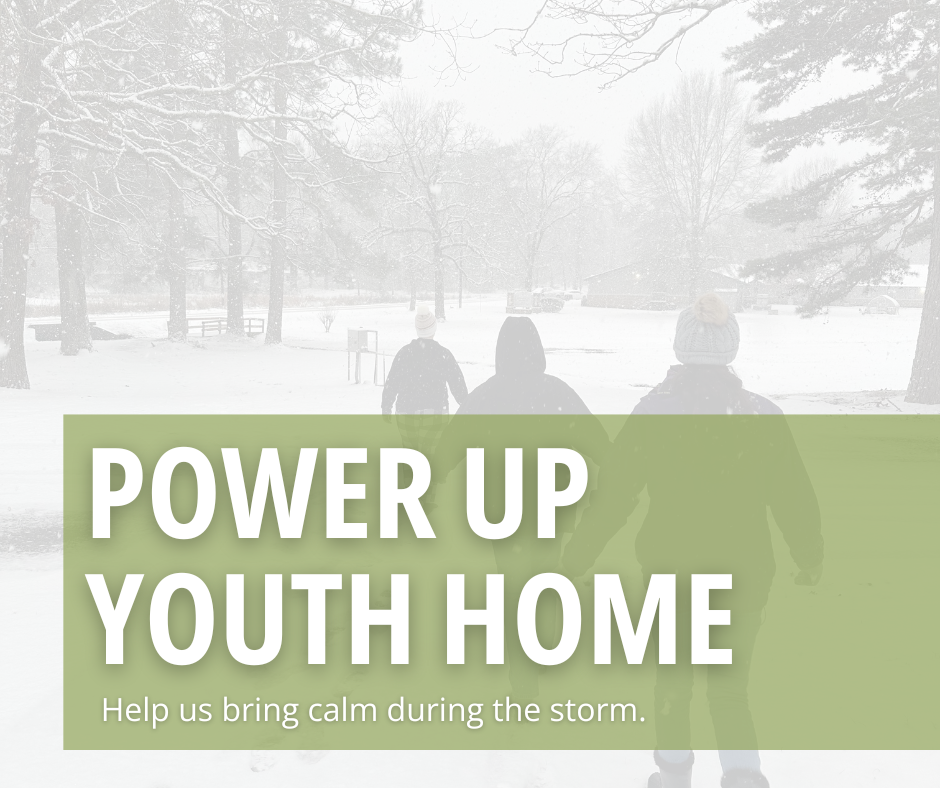Military Families in Crisis
How the Government Shutdown is Disrupting Critical Mental Health Care
The current government shutdown has brought an already critical situation to a breaking point. Across the nation, Psychiatric Residential Treatment Facilities (PRTFs)—specialized centers providing intensive mental health care to children and adolescents, like Youth Home in Little Rock—are struggling to maintain operations as TRICARE payment delays have escalated from a chronic problem to a complete halt.
For military families who have sacrificed so much in service to our country, this crisis couldn't come at a worse time.
A Crisis Two Years in the Making
The challenges facing PRTFs didn't start with this shutdown. For nearly two years, child and family service organizations nationwide have been experiencing escalating delays in TRICARE reimbursements for services already provided. Organizations have been sounding the alarm about a system that was already failing military families.
Now, with the government shutdown in effect, the situation has become dire: claims from September through present day are being processed, but payment is not being issued, and the providers who serve our military families are facing an unprecedented financial crisis.
What's at Stake: More Than Just Money
When we talk about payment delays and shutdowns, it's easy to lose sight of the human impact. Behind every delayed claim is a child receiving trauma-informed psychiatric care. Behind every unpaid invoice is a family seeking healing and hope after the unique challenges of military life—frequent relocations, parental deployments, and the emotional toll of service to country.
PRTFs provide specialized, relationship-based care that these young people desperately need. These aren't optional services or convenient amenities. For many military families, PRTFs represent a critical intervention during their darkest moments—when a child is in psychiatric crisis and traditional outpatient care isn't enough.
The Ripple Effect on Care
The financial instability created by non-payment threatens more than balance sheets. It threatens:
- Continuity of Care: When facilities face cash flow crises, they may be forced to reduce services, delay admissions, or in worst-case scenarios, close their doors entirely. Children currently receiving treatment could see their care interrupted at critical junctures in their healing journey.
- Workforce Stability: PRTFs employ clinical professionals, therapists, case managers, direct care staff, and support personnel. Without reliable revenue, organizations struggle to maintain adequate staffing levels, affecting the quality and availability of care.
- Access to Treatment: As facilities reduce capacity or close, military families face longer waitlists and fewer options for accessing the specialized psychiatric care their children need.
- Provider Sustainability: Organizations that have served military families for decades may not survive extended periods without payment, permanently reducing the network of care available to service members.
Military Families Deserve Better
Our military families have answered the call to serve. They've endured separations, relocations, and the constant stress of military life. When their children need mental health support—often as a direct result of the challenges military families uniquely face—they deserve immediate access to quality care.
They also deserve a system that honors its commitments. TRICARE exists precisely to ensure that military families receive the healthcare they've earned through service. When that system breaks down, we're failing to keep our promise to those who keep us safe.
The Path Forward: Your Voice Matters
Peggy Larkin Kelly, LPC-S, Chief Executive Officer of Youth Home, Inc., has joined colleagues nationwide in calling on our elected officials and the Department of Defense to take immediate action. But they can't do it alone.
Here's how you can help:
Contact Your Elected Officials
Reach out to your U.S. Senators and Representatives. Tell them that military families deserve timely access to mental health care and that providers serving these families must receive prompt payment for services rendered. Emphasize that this isn't a partisan issue—it's about keeping our commitments to those who serve.
Find your representatives:
Visit www.congress.gov to find contact information for your senators and congressional representative.
Write to Key Decision-Makers
Consider reaching out to:
- The Secretary of Defense
- Your Commanding Officer or TRICARE Case Manager
- Your state's governor and US representatives
- The Senate and House Armed Services Committees
Use this sample letter as a template to communicate the urgency of this issue to your representatives.
Share This Story
Help raise awareness by sharing the challenges facing military providers and military families with your community, social media networks, and local media outlets. The more people understand what's at stake, the more pressure there will be to resolve this crisis.
Support Organizations Serving Military Families
If you're in a position to do so, consider supporting PRTFs and other organizations serving military families through donations, volunteer work, or advocacy.
A Call to Action
This crisis demands urgent attention and swift action. Every day that passes without resolution is another day that providers struggle to keep their doors open and another day that military families face uncertainty about accessing critical care.
Our service members have never hesitated to answer the call when our nation needs them. Now it's our turn to answer theirs.
Contact your legislators today. Demand that they prioritize ending the shutdown and ensuring TRICARE processes claims without further delay. Tell them that military families and the organizations serving them deserve better than broken promises and bureaucratic dysfunction.
The children and families who have given so much for our country are counting on us to fight for them now.
Get to Know youth home!
Our mission is to equip and empower youth, adults, and families to become healthier and contributing members of the community by providing compassionate psychiatric and behavioral health care.



